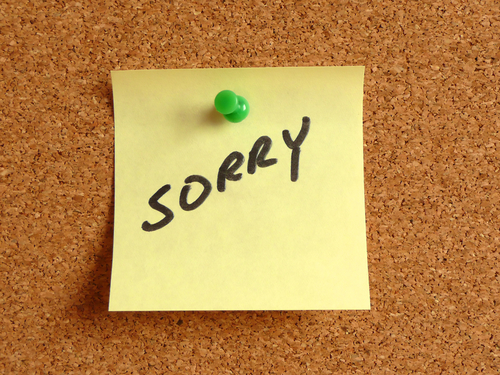 Have you been personally inconvenienced by the government shutdown? I’m so sorry.
Have you been personally inconvenienced by the government shutdown? I’m so sorry.
On its face, that’s a strange statement to make. I have nothing to do with the government shutdown, so I have nothing to apologize for. And yet we make such apologies all the time. Why?
Newly published research suggests that they perform the important function of building trust. In our minds, anyone who takes note of our misfortune, and expresses dismay over it, is impressively empathetic and thus worthy of our confidence.
“Even in the absence of culpability, individuals can increase trust and liking by saying ‘I’m sorry’—even when they are merely ‘sorry’ about the rain,” writes a research team led by Alison Wood Brooks of Harvard Business School. The team’s study is published in the journal Social Psychological and Personality Science.
Brooks and her colleagues describe four experiments that suggest the value of “superfluous apologies,” which they describe as “expressions of regret for an undesirable circumstance that is clearly outside of one’s control.” Arguably the most compelling of the four is one that took place neither online nor in a lab room, but in a real-world setting.
Over the course of two rainy days in November 2010, a man (who did not know the purpose of the experiment) approached 65 strangers at a large train station in the Northeastern United States and asked to borrow their phone. The researchers, reasonably enough, consider agreeing to such a request a sign of trust.
Half the time, he came up to the person and said: “I’m so sorry about the rain! Can I borrow your cell phone?” The other half, he skipped the apology and went directly to the request.
Among those who were greeted with a superfluous apology, 47 percent handed it over. Among those who weren’t, only nine percent agreed to the phone loan.
“By issuing a superfluous apology,” the researchers write, “the apologizer communicates that he has taken the victim’s perspective, acknowledge adversity, and expresses regret.” This simple action, they add, “demonstrates empathetic concern for the victim, and increases the victim’s trust in the apologizer.”
So the next time you need to establish trust with someone, try apologizing for something outside of your control. If it doesn’t work—well, I’m sorry.

